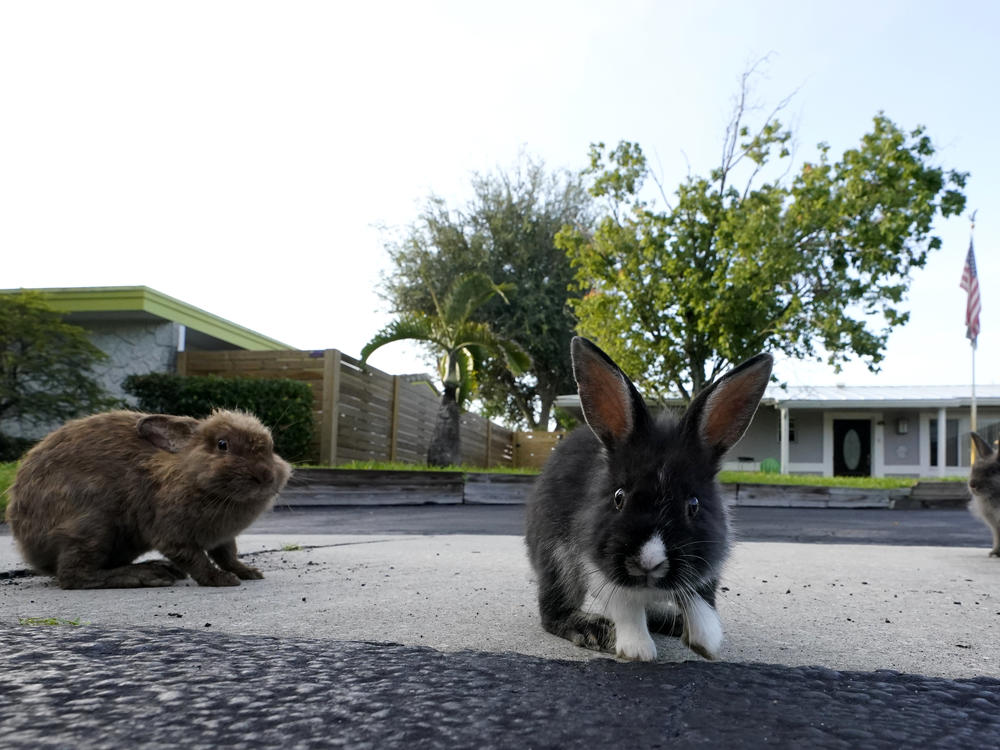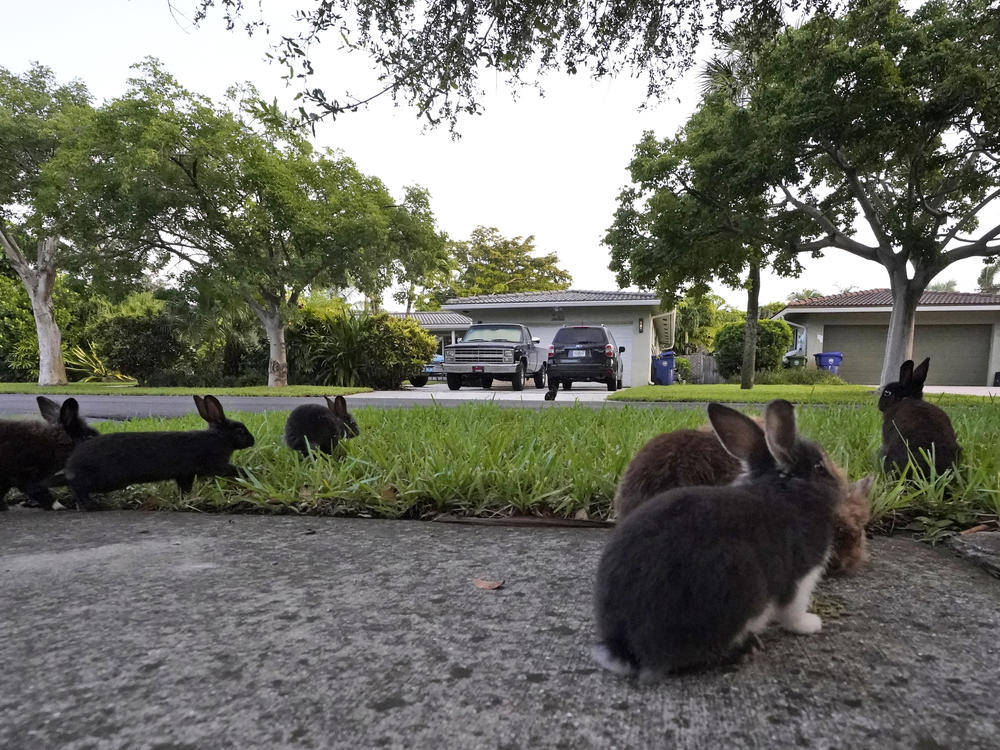Section Branding
Header Content
Rabbits have overrun a suburban Florida community. Volunteers hop to the rescue
Primary Content
A community in South Florida has an adorable problem on its hands.
Dozens of domesticated bunnies have overrun parts of Wilton Manors, a suburb of Fort Lauderdale. Two years after a resident let loose lionhead rabbits from their backyard, according to local lore, the number of rabbits now outnumber the 81 homes in the Jenada Isle neighborhood.
The furry invasion has divided the neighborhood's residents. Some have allegedly threatened to shoot the animals or feed them to their snakes. Some want to let the bunnies roam free. Others, concerned about the rabbits' safety, are racing to raise money to save them.
East Coast Rabbit Rescue, a nonprofit organization, is spearheading an effort to rescue and rehome the bunnies. The group managed to rescue 19 rabbits on Friday, three of which are pregnant.
The volunteer-run outfit began rounding up the rabbits after partnering with city police to complete the mission.
The big challenge in trapping the rabbits has been the residents, says ECRR President Monica Mitchell.
"Our hope was to rescue up to 45 — that was our goal yesterday," she said on Saturday. "But, unfortunately, we encountered lots of issues there ... because the residents were so hostile. Some residents didn't want us to take the bunnies."
An officer from the Wilton Manors Police Department was present during the mission to provide protection, but Mitchell is asking the city to do more.
"The city needs to approach the residents in a different way," she said, and "say, hey, you guys need to allow the rescue to come and get the rest of the bunnies. They haven't done that."
The lionhead rabbits, a fluffier species noted for their thick mane (or double mane or full mane) circling the head, aren't built for suburban Florida, Mitchell says.
The animals, which are prone to heat stroke, she says, have been digging holes in the ground to escape the oppressive heat, to the irritation of some residents. Lacking a proper source of clean water or food, the rabbits have been grazing on lawns that could be treated with toxic pesticides. The rabbits are also at the mercy of the area's predators and cars.
The West Palm Beach-based group says it will need at least $40,000 to be able to capture, neuter and spay, vaccinate and microchip the over 100 rabbits-and-counting. So far, it's raised over half of that goal. The WMPD has not yet committed funds toward the effort, a spokesperson told NPR.
The costs are quickly adding up, Mitchell says.
Care for each rabbit costs between $200 to $300, she says, not including any extra medical attention she says several bunnies need.
The rabbits require care from exotic veterinarians, which are rarer and costlier than vets who treat the common pet. Rabbit Rescue is preparing for high vet bills, which in some cases will include surgery to treat the animals, the group's president said.
"Sometimes the vet that is willing to or capable to do the surgery is like 3 to 4 hours away from us," she added.
During an April 25 city council meeting, Wilton Manors councilmembers were concerned that drafting policies to solve the problem would set a precedent for the need to curb other invasive animals, including iguanas and ducks.
Mitchell says that according to neighbors she's spoken to, the rabbits descend from pets kept by a former resident who illegally let them loose when she moved out of state two years ago.
Naturally, they've since reproduced, multiplying like rabbits.
Mitchell's rescue group is calling on the community to help with donations, supplies and fosters to care for the captured rabbits.
"Please contact us if you can foster some bunnies and live in West Palm Beach area," ECRR wrote in a post on its Facebook page. "We will provide everything, you just need to love them."
Copyright 2023 NPR. To see more, visit https://www.npr.org.


